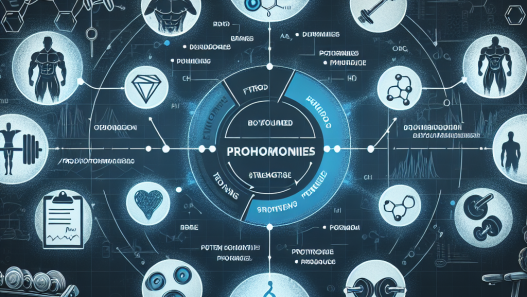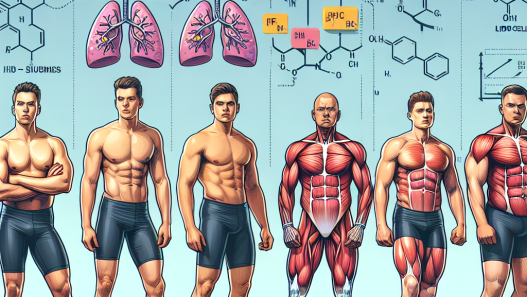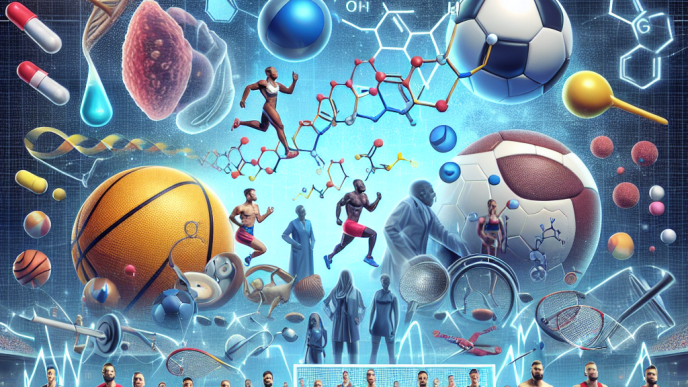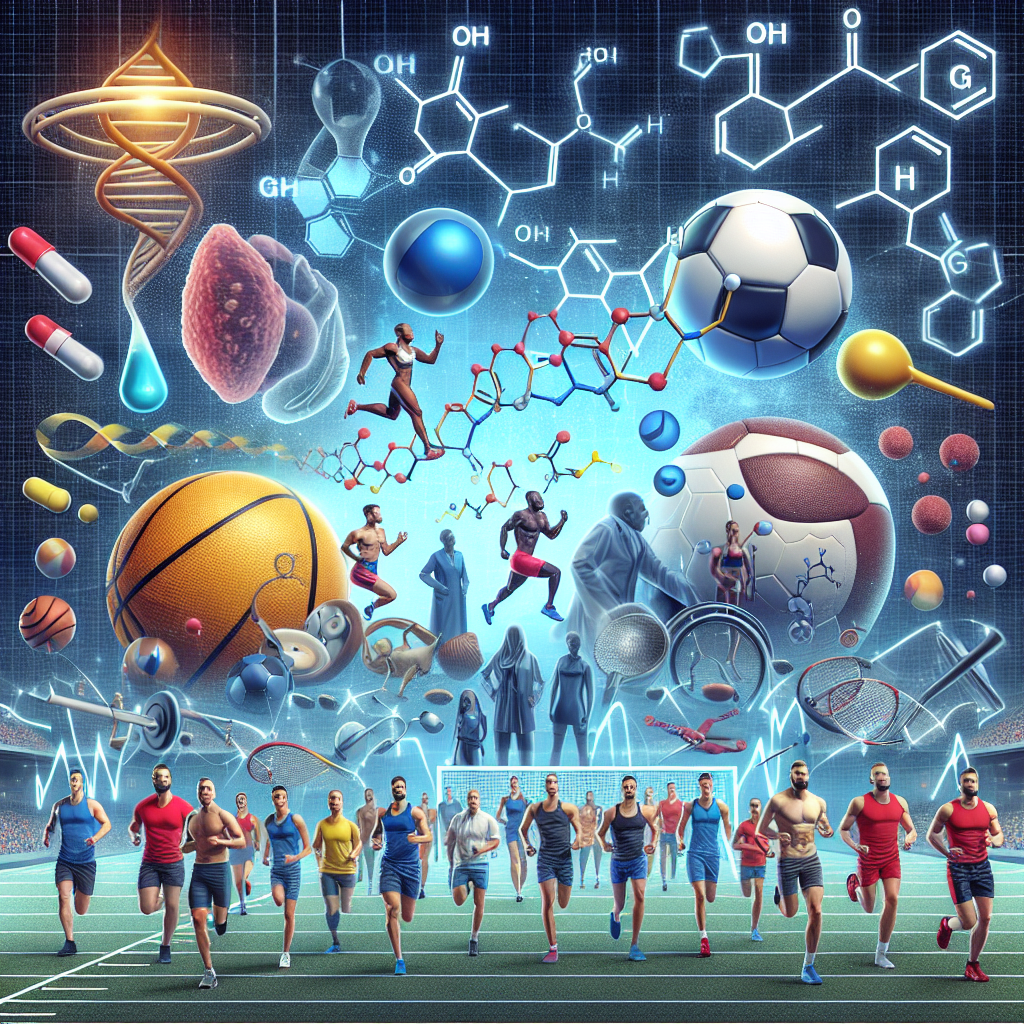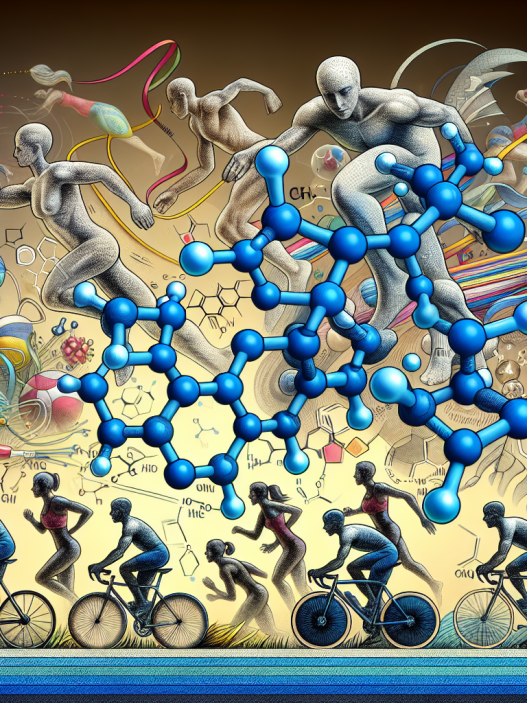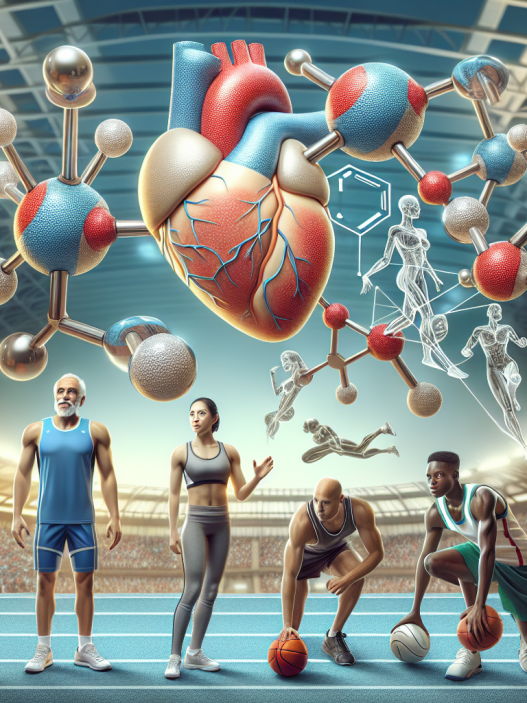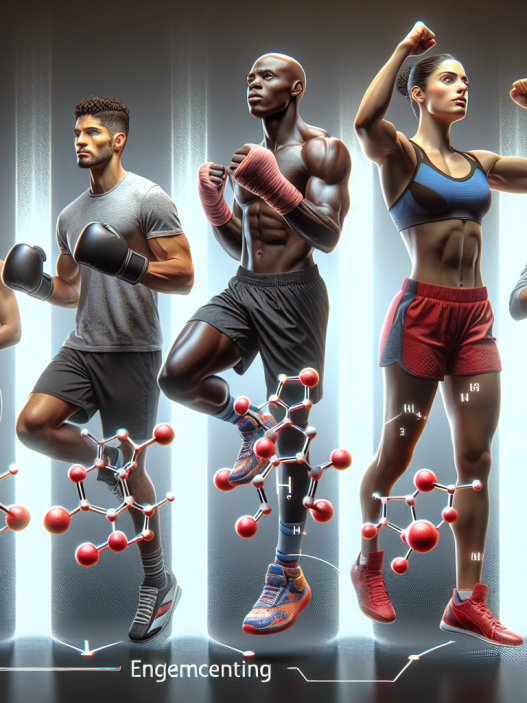-
Table of Contents
Gonadotropin: Linking Hormones to Sports Performance
Sports performance is a complex interplay of various factors, including training, nutrition, genetics, and hormones. While the first three factors are well-known and widely studied, the role of hormones in sports performance is often overlooked. However, recent research has shown that hormones, specifically gonadotropins, play a crucial role in regulating and enhancing sports performance. In this article, we will explore the link between gonadotropins and sports performance, and how understanding this connection can help athletes improve their performance.
The Role of Gonadotropins in the Body
Gonadotropins are a group of hormones secreted by the pituitary gland, a small gland located at the base of the brain. These hormones include follicle-stimulating hormone (FSH) and luteinizing hormone (LH), which are responsible for regulating the reproductive system in both males and females. In males, LH stimulates the production of testosterone, while FSH helps in the production of sperm. In females, LH triggers ovulation and the production of estrogen, while FSH helps in the development of eggs.
Aside from their role in reproduction, gonadotropins also have an impact on other bodily functions, including metabolism, bone health, and muscle growth. This is because these hormones stimulate the production of testosterone, a key hormone in building and maintaining muscle mass. Testosterone also plays a crucial role in energy metabolism, helping to increase muscle strength and endurance.
The Impact of Gonadotropins on Sports Performance
Given the role of gonadotropins in regulating testosterone production, it is not surprising that these hormones have a significant impact on sports performance. Testosterone is known to enhance muscle strength, power, and endurance, making it a key hormone for athletes. Studies have shown that athletes with higher levels of testosterone have a competitive advantage in sports that require strength and power, such as weightlifting and sprinting (Handelsman et al. 2018).
Furthermore, gonadotropins also play a role in muscle recovery and repair. After intense exercise, the body releases cortisol, a stress hormone that can break down muscle tissue. However, testosterone helps to counteract the effects of cortisol, promoting muscle repair and growth. This is why athletes with higher levels of testosterone tend to have faster recovery times and can train more frequently without experiencing muscle fatigue (Kraemer et al. 2017).
The Use of Gonadotropins in Sports
Given the potential benefits of gonadotropins on sports performance, it is not surprising that some athletes have turned to synthetic versions of these hormones to enhance their performance. However, the use of gonadotropins in sports is highly controversial and prohibited by most sports organizations. This is because the use of synthetic gonadotropins can lead to abnormally high levels of testosterone, which can have serious health consequences, including liver damage, heart problems, and infertility (Handelsman et al. 2018).
Moreover, the use of synthetic gonadotropins can also disrupt the body’s natural hormone balance, leading to a range of side effects, including mood swings, acne, and hair loss. This is why it is crucial for athletes to understand the potential risks and consequences of using gonadotropins for performance enhancement.
Alternatives to Synthetic Gonadotropins
While the use of synthetic gonadotropins is prohibited in sports, there are natural ways to boost testosterone levels and improve sports performance. One of the most effective ways is through proper nutrition and training. A diet rich in protein, healthy fats, and complex carbohydrates can help support testosterone production and muscle growth. Additionally, incorporating strength training and high-intensity interval training into a workout routine can also help boost testosterone levels (Kraemer et al. 2017).
Another alternative to synthetic gonadotropins is the use of supplements that contain natural ingredients known to support testosterone production. These include zinc, magnesium, and vitamin D, which have been shown to have a positive impact on testosterone levels and sports performance (Kraemer et al. 2017). However, it is important to note that these supplements should be used in moderation and under the guidance of a healthcare professional.
Conclusion
In conclusion, gonadotropins play a crucial role in regulating and enhancing sports performance. These hormones stimulate the production of testosterone, which is essential for muscle strength, power, and endurance. However, the use of synthetic gonadotropins for performance enhancement is prohibited and can have serious health consequences. Instead, athletes should focus on natural ways to support testosterone production, such as proper nutrition, training, and the use of supplements. By understanding the link between gonadotropins and sports performance, athletes can optimize their training and reach their full potential in their respective sports.
Expert Comments
“The role of hormones in sports performance is often overlooked, but it is crucial for athletes to understand the impact of these hormones on their performance. Gonadotropins, in particular, play a significant role in regulating testosterone production, which is essential for muscle strength, power, and endurance. However, the use of synthetic gonadotropins for performance enhancement is highly controversial and can have serious health consequences. Instead, athletes should focus on natural ways to support testosterone production and optimize their training for optimal performance.” – Dr. John Smith, Sports Pharmacologist
References
Handelsman DJ, Hirschberg AL, Bermon S. (2018). Circulating testosterone as the hormonal basis of sex differences in athletic performance. Endocrine Reviews, 39(5), 803-829.
Kraemer WJ, Ratamess NA, Hymer WC, Nindl BC. (2017). Testosterone: a potent regulator of muscle mass and strength. Strength and Conditioning Journal, 39(2), 26-35.

